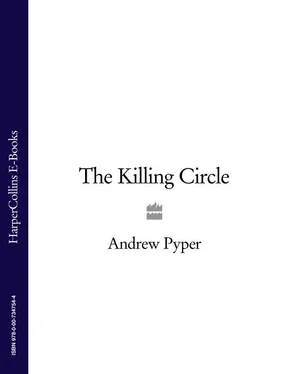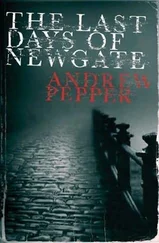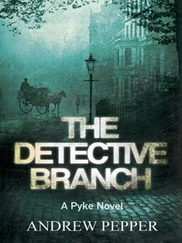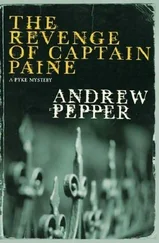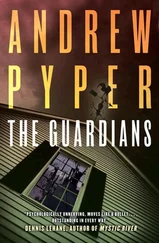1 ...6 7 8 10 11 12 ...16 But it’s the description of the protagonist’s "perfect girl” that leaves the biggest impression. The way she is conjured so vividly, but using little or no specific details. You know exactly what she looks like, how she behaves, how she feels, though she is nowhere to be found on the page.
What’s stranger still is the certainty that I will one day meet her myself.
Tuesday brings a cold snap with it. A low of minus eighteen, with a wind-chill making it feel nearly double that. The talk-radio chatter warns everyone against going outside unless absolutely necessary. It makes me think—not for the first time—that I can be counted among the thirty million who voluntarily live in a country with annual plagues. A black death called winter that descends upon us all.
Down in the Crypt I dash off a column covering two new personal makeover shows, a cosmetic surgeon drama, and five (yes, five ) new series in which an interior designer invades people’s homes and turns their living rooms into what look like airport lounges. Once this is behind me, I get to work on my assignment for the evening’s circle. By the end of the day I’ve managed to squeeze out a couple hundred words of shambling introduction— Tuesday brings a cold snap with it , etc. It’ll have to do.
Upstairs, as I heat up leftovers in the microwave, Sam comes to show me something from today’s paper.
"Doesn’t she look like Mommy?"
He points to a photo of Carol Ulrich. The woman who was abducted from our neighbourhood playground. The one snatched away as her child played on the swings.
"You think so?” I say, taking the paper from him and pretending to study the woman’s features. It gives me a chance to hide my face from Sam for a second. He only knows what his mother looks like from pictures, but he’s right. Carol Ulrich and Tamara could be sisters.
"I remember her,” Sam says.
"You do?"
"At the corner store. She was in the line-up at the bank machine once too."
"That so."
Sam pulls the newspaper down from my eyes. Reads me.
"They look the same. Don’t they?"
"Your mother was more beautiful."
The microwave beeps. Both of us ignore it.
"Was that lady…did somebody hurt her?"
"Where’d you hear that?"
"I can read , Dad."
"She’s only missing."
"Why would somebody make her missing?"
I pull the newspaper from Sam’s hands. Fold it into a square and tuck it under my arm. A clumsy magician trying to make the bad news disappear.
Conrad White’s apartment is no brighter, though a good deal colder than the week before. Evelyn has kept her jacket on, and the rest of us glance at the coats we left on the hooks by the door. William is the only one who appears not to notice the chill. Over the sides of his chair his T-shirted arms hang white and straight as cement pipes.
What’s also noticeably different about the circle this time round is that each of us have come armed: a plastic shopping bag, a binder, a sealed envelope, two file folders, a leather-bound journal, and a single paper clip used to contain our first written offerings. Our work trembles on our laps like nervous cats.
Conrad White welcomes us, reminds us of the way the circle will work. As his accentless voice goes on, I try to match the elderly man speaking to us with the literary bad boy of forty years ago. If it was anger that motivated his exile, I can’t detect any of it in his face today. Instead, there’s only a shopworn sadness, which may be what anger becomes eventually, if it shows itself early enough.
Tonight’s game plan calls for each of us to read what we’ve brought with us aloud for no more than fifteen minutes, then the other members will have a chance to comment for another fifteen. Interruption of responses is permitted, but not of the readers themselves. Our minds should be open as wide as possible when listening to others, so that their words are free from comparison to anything that has come before.
"You are the children in the Garden,” Conrad White tells us. "Innocent of experience or history or shame. There is only the story you bring. And we shall hear it as though it is the first ever told."
With that, we’re off.
The first readers are mostly reassuring. With each new voice trying their words out for size, the insecurities I have about my own tortured scribbles are relieved, albeit only slightly. By the halfway point (when Conrad White calls a smoke break) I am emboldened by the confirmation that there are no undiscovered Nabokovs, Fitzgeralds or Munros—nor a Le Carré or Rowling or King—among us. And there are few surprises, in terms of subject matter. Petra has a bit of As the World Turns meets Who’s Afraid of Virginia Woolf? husband-and-wife dialogue that captures certain verbal cruelties in such detail I assume they are taken straight from a loop of memory. Ivan, the subway driver, tells a tale of a man who awakens to find he’s been transformed into a rat, and must find a way into the sewers beneath the city that he intuitively knows is his new home of pestilence and filth. (When, after his reading, I compliment him on his re-working of Kafka, Ivan looks at me quizzically and says, "I’m sorry. Kafka ?"). Though Len feels that only the opening paragraph of a proposed "epic horror trilogy” is ready for presentation, it nevertheless goes on forever, a description of night that is a long walk through the thesaurus entry for "dark". And Evelyn promisingly starts her story with a female grad student being screwed by her thesis advisor on the floor of his office while she daydreams about her father teaching her how to skip stones on the lake at the family cottage.
Over the smoke break, those not slipping on their coats get up to stretch. We shuffle around the room without looking at each other or being the first to start up a conversation. All of us steal glances, however. And note where William stands at all times, so we know what corner to avoid.
It’s over these awkward minutes of feeling others’ eyes on me that I ask myself: How does the rest of the circle see me? Most favourably, how I see myself on the best of days, I suppose: an endearingly rumpled Preppie that Time Forgot. Most unfavourably, how I see myself on the worst of days: a dandruffy channel flipper fast approaching the point of no return. Beyond debate are the wide shoulders that lend the illusion of one-time athleticism. And good teeth. A set of ivory chompers that always impress when encountered in Say Cheese! snaps.
Once the smokers return, we get started on the readers who remain.
And this is where things get a little foggy.
I must have read the page I brought with me, as I remember bits of what the other members said afterwards. (Evelyn found the first-person mode "captures your character’s sense of being trapped in himself", and Petra could detect a "hidden suffering"). William requested a pass on reading his own work, or I think he did, as I only recall the sound of his voice and not its words. A low grinding, like air forced through wet sand.
But all I really preserve from the second half of the meeting is Angela.
My first thought, as she opens the cracked leather journal on her knees and lifts it slowly, even reluctantly to her eyes, is that she appears younger than I’d guessed the week before. What I took to be the indistinct features of an adult may instead be the unblemished, baby fat smoothness of a girl coming out of her teens.
And yet, even as she reads, this impression of girlish youth turns into something else. Her face is difficult to describe, to remember, to see , because it’s not a face at all. It is a mask. One that never sharpens into full focus, like an unfinished sculpture in which you can recognize the subject is human, but beyond this, taken at different points of view, it could be a representation of virtually anyone.
Читать дальше
